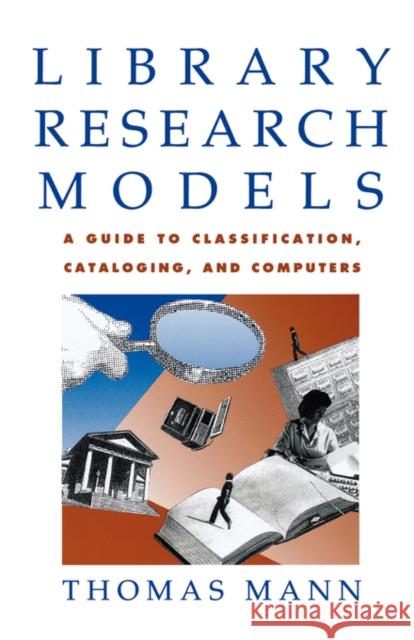Library Research Models: A Guide to Classification, Cataloging, and Computers » książka
Library Research Models: A Guide to Classification, Cataloging, and Computers
ISBN-13: 9780195093957 / Angielski / Miękka / 1994 / 268 str.
Most researchers, even with computers, find only a fraction of the sources available to them. As Library of Congress reference librarian Thomas Mann explains, researchers tend to work within one or another mental framework that limits their basic perception of the universe of knowledge available to them. Some, for example, use a subject-disciplinary method which leads them to a specific list of sources on a particular subject. But, Mann points out, while this method allows students and researchers to find more specialized sources, it is also limiting--they may not realize that works of interest to their own subject appear within the literature of many other disciplines. A researcher looking through anthropology journals, for example, might not discover that the MLA International Bibliography provides the best coverage of folklore journals.
In Library Research Models, Mann examines the several alternative mental models people use to approach the task of research, and demonstrates new, more effective ways of finding information. Drawing on actual examples gleaned from 15 years' experience in helping thousands of researchers, he not only shows the full range of search options possible, but also illuminates the inevitable tradeoffs and losses of access that occur when researchers limit themselves to a specific method. In two chapters devoted to computers he examines the use of electronic resources and reveals their value in providing access to a wide range of sources as well as their disadvantages: what people are not getting when they rely solely on computer searches; why many sources will probably never be in databases; and what the options are for searching beyond computers.
Thomas Mann's A Guide to Library Research Methods was widely praised as a definitive manual of library research. Ronald Gross, author of The Independent Scholar's Handbook called it "the savviest such guide I have ever seen--bracingly irreverent and brimming with wisdom." The perfect companion volume, Library Research Models goes even further to provide a fascinating look at the ways in which we can most efficiently gain access to our vast storehouses of knowledge.











